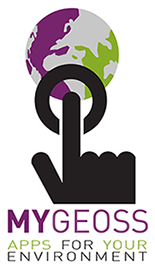MYGEOSS Call For Innovative Apps in the environmental and social domains
 MYGEOSS is launching an open call for development of innovative applications (mobile or web-based) using openly available or crowd-generated data in different domains addressing citizens’ needs.
MYGEOSS is launching an open call for development of innovative applications (mobile or web-based) using openly available or crowd-generated data in different domains addressing citizens’ needs.
The pool of open data for use includes but is not limited to the Data Collection of Open Resources for Everyone (GEOSS Data-CORE) made available by the Group on Earth observation (GEO) through the Global Earth Observation System of Systems (GEOSS), as well as open data from EU-funded projects.
